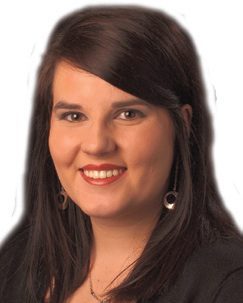20 Sep 2015 Keeping children healthy and hydrated
by Katelin Whiddon
Our bodies are made primarily of water, and water is a huge necessity in our lives. Children, much like adults, don’t get an adequate amount of water in their diet. Water should be thought of as an important nutrient, just like vitamins and minerals. Teaching your children to drink water at an early age can help them learn good drinking habits for the rest of their lives.
For adults, to determine the adequate daily water intake, divide your weight in half and drink that many ounces of water per day. For example, if someone weighs 150 pounds, they should drink at least 75 ounces of water daily.
For children, however, it is not always calculated the same. Healthychildren.org recommends the daily amount of fluids based on age. Children ages 4 to 8 years old should drink at least five glasses of fluids per day. Children 9 to 12 years old should aim for seven glasses per day. Then, children 13 years and older should drink eight to 10 glasses per day. Of course, those needs will increase when outdoors on a hot day, and when doing physical activity/exercise.
A small part of your child’s daily water intake may come from foods, but the majority should come from drinking water alone. An inadequate water intake can negatively affect numerous organs and body systems in addition to potential dehydration – an especially dangerous condition in children. Watermelon is a water-rich food that most kids will gladly consume during the warm months, and is a good option for providing additional water intake. By letting your child select their own reusable water bottle, you can also encourage them to consume more water.
Milk and water are the only liquids your child should need in their daily intake. Water is a great choice for children since it doesn’t contain sugars or high fructose corn syrup, artificial sweeteners, caffeine or other non-beneficial ingredients. Most cities have fluoride in tap water – which can help keep teeth and bones strong. If you are not sure if your water contains fluoride, contact the company responsible for your tap water. Your child’s pediatrician may be able to provide fluoride supplements if it is not present in your water. Pediatric dentists also provide services to help protect your child’s teeth and give fluoride treatments.
Many parents ask when they can start giving juice. I generally explain that, for the most part, juice is not necessary. While fruit juices can contain some vitamins, it is also high in calories and sugars. Sadly, the same goes for sports drinks, flavored waters, sodas, etc. While diet sodas do not contain the calories, they have colors and artificial sweeteners that may have negative effects on children and adults alike. An 8-ounce cup of fruit juice or soda may contain as much as 6 teaspoons of sugar and well over 100 calories.
Healthykids.org and the AAP cite a study on juice intake in children and showed that children ages 4 to 12 who drank 1-2 cups of juice or soda were twice as likely to be overweight or obese as those children who consumed none of the above. If you have questions regarding juice, please speak to your child’s pediatrician.
One caveat – it is definitely possible to drink too much water. Overloading the body with fluids can cause water intoxication, which is an imbalance between water and sodium in the blood plasma. Fortunately, this is a very uncommon occurrence in children. Always discuss the proper amount of water consumption with your health care provider.
The American Academy of Pediatrics, HealthyKids.org and your pediatrician are great sources of information when it comes to your children and their health. Children also learn to do as we do as parents, so set a good example for your children in your water intake and healthy choices. As your child’s greatest advocate, help teach them these health habits from an early age and set them up for the best future possible.
A native of Conway, Katelin Whiddon is a family nurse practitioner at Central Arkansas Pediatrics. She and her husband, Daniel, have two daughters. A graduate of the University of Central Arkansas, she has her bachelor’s and master’s degrees.












